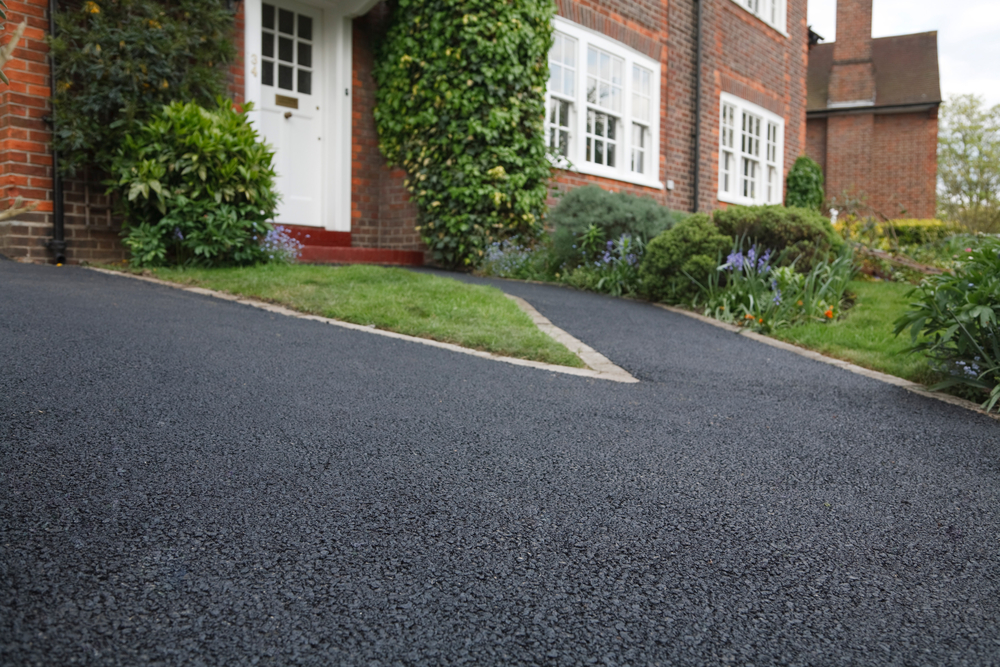Hot Mix Asphalt: A Sustainable Solution for Pavement
Warm Mix Asphalt (HMA) has arised as a leading sustainable choice for sidewalk options, offering a myriad of environmental advantages and ingenious modern technologies. As the demand for environmentally friendly building and construction methods grows, checking out the nuances of HMA's sustainability can provide beneficial insights right into the future of pavement options.
Environmental Advantages of Hot Mix Asphalt

Furthermore, Hot Mix Asphalt aids to alleviate urban warm island effects. Its dark shade absorbs sunlight, reducing the amount of warmth reflected back right into the environment contrasted to lighter-colored pavements. This can decrease ambient temperatures in city areas, lowering the demand for a/c and inevitably minimizing power usage.
Additionally, Hot Mix Asphalt adds to boosted stormwater monitoring. Its porous nature allows water to reenergize and infiltrate the pavement groundwater supplies, decreasing overflow and the threat of flooding. These ecological advantages make Warm Mix Asphalt a lasting choice for paving highways and roads.
Energy Efficiency in HMA Production
Is power effectiveness an important aspect in the production of Warm Mix Asphalt (HMA)? Power plays a significant duty in the manufacturing of HMA, affecting both cost and ecological sustainability. One essential aspect of power effectiveness in HMA production is the usage of warm mix asphalt (WMA) modern technologies.
Additionally, improvements in plant technologies have led to even more energy-efficient HMA production processes. By enhancing power usage in HMA manufacturing, the industry can minimize its carbon impact while maintaining premium sidewalk materials.
Recyclability of Hot Mix Asphalt
The recyclability of Hot Mix Asphalt (HMA) is a crucial aspect of its sustainability and long-lasting ecological effect. HMA is just one of one of the most recycled products in the United States, with over 100 million lots of reclaimed asphalt pavement (RAP) being reused every year in brand-new sidewalk construction. Recycling HMA uses numerous ecological advantages, such as reducing the demand for virgin materials, lowering energy consumption during production, and reducing the quantity of waste sent out to garbage dumps.
The procedure of reusing HMA includes milling the existing sidewalk, squashing it right into her explanation smaller sized pieces, and mixing it with brand-new aggregate and asphalt binder to create a recycled mix. On the whole, the recyclability of HMA plays a substantial function in promoting lasting techniques within the pavement industry.

Long-Term Efficiency of HMA
Asphalt sidewalks demonstrate durability and resilience over an extended duration, showing the lasting efficiency of Warm Mix Asphalt (HMA) The long life of HMA can be connected to its capacity to hold up against hefty traffic loads, harsh climate condition, and the effects of aging. Researches have actually revealed that properly designed and appropriately created HMA sidewalks can last for twenty years or more with regular maintenance. The trick to making the most of the long-lasting performance of HMA hinges on making use of high-grade products, complying with best practices in construction, and applying reliable maintenance techniques. Appropriate drain, routine examinations, and prompt repair work are important for preserving the architectural stability of HMA pavements with time. In addition, developments in HMA technology, such as making use of polymer-modified binders and cozy mix asphalt, have better improved the resilience and long life of HMA sidewalks. By prioritizing top quality building and upkeep methods, HMA proceeds to verify itself as a sustainable and cost-efficient service for long-lasting sidewalk infrastructure.

HMA: Sturdiness and Sustainability
Demonstrating both longevity and sustainability, Warm Mix Asphalt (HMA) has come to be a cornerstone in the building and construction of resilient pavement facilities - angled parking. HMA's longevity comes from its capacity to endure hefty tons, rough weather condition problems, and high traffic quantities, making it a dependable selection for streets, freeways, and airport runways. The make-up of HMA, which generally consists of aggregates, binder, and filler, plays a vital duty in improving its long life and resistance to tear and use
In addition, HMA's sustainability lies in its recyclability and energy-efficient production procedure. The capacity to reuse recovered asphalt sidewalk (RAP) in brand-new HMA mixtures decreases the need for virgin products and More about the author minimizes the environmental effect of sidewalk construction and maintenance. Furthermore, the power performance of generating HMA hinges on its lower mixing temperatures contrasted to various other sidewalk products, bring about reduced energy usage and greenhouse gas discharges.
Final Thought
In verdict, warm mix asphalt (HMA) provides a sustainable remedy for sidewalk with its ecologically friendly features. HMA's recyclability, power efficiency in manufacturing, and long-lasting sturdiness make it an environmentally friendly choice for roadway building.
HMA is one of the most recycled materials in the United States, with visit site over 100 million bunches of recovered asphalt pavement (RAP) being recycled yearly in brand-new pavement construction.The procedure of recycling HMA entails milling the existing pavement, squashing it into smaller sized pieces, and blending it with new accumulation and asphalt binder to create a recycled mix.Asphalt sidewalks demonstrate durability and durability over an extended duration, mirroring the long-lasting efficiency of Warm Mix Asphalt (HMA) Furthermore, advancements in HMA innovation, such as the use of polymer-modified binders and warm mix asphalt, have actually even more improved the toughness and longevity of HMA pavements. The capacity to reuse recovered asphalt sidewalk (RAP) in new HMA blends reduces the demand for virgin products and minimizes the environmental influence of pavement building and upkeep.